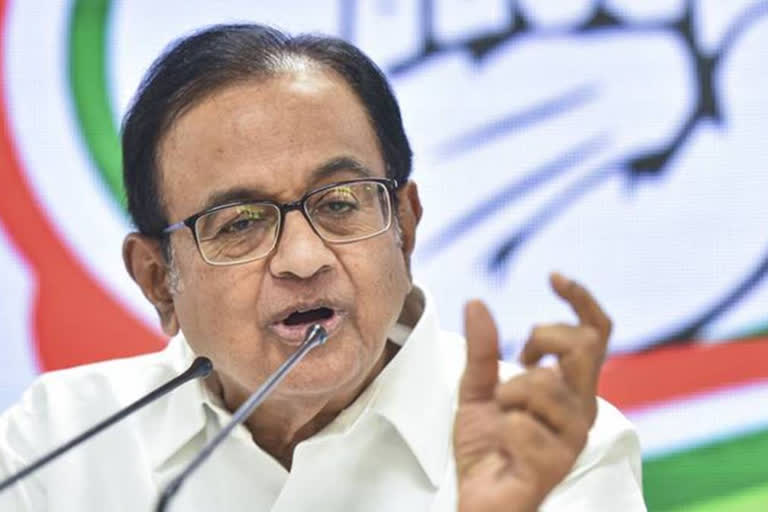New Delhi: Senior Congress leader P Chidambaram on Tuesday complimented the states that rejected the two options given by the Centre to bridge the gap in the GST compensation cess and asked them to stand firm at the next meeting of the GST council on October 12.
The former finance minister said the states should not borrow as the liability to provide Goods and Services Tax (GST) compensation as well as the onus to find resources fall on the Centre.
"I compliment the 9-10 states that stood firm and rejected the two options given by the central government to bridge the gap in the GST compensation cess."
"The liability to provide the GST compensation to the full extent falls on the central government, as reluctantly admitted by the FM yesterday. Naturally, the onus of finding the resources also falls on the central government," he said in a series of tweets.
"It is unfair and unjust to ask state governments to borrow the money. States must stand firm at the next meeting on 12th October," Chidambaram said.
At its meeting on Monday, the GST Council failed to reach a consensus on ways to compensate the states for the loss of tax revenue.
The panel will meet again on October 12 to thrash out the state compensation issue, Finance Minister Nirmala Sitharaman said after a marathon eight-hour meeting.
